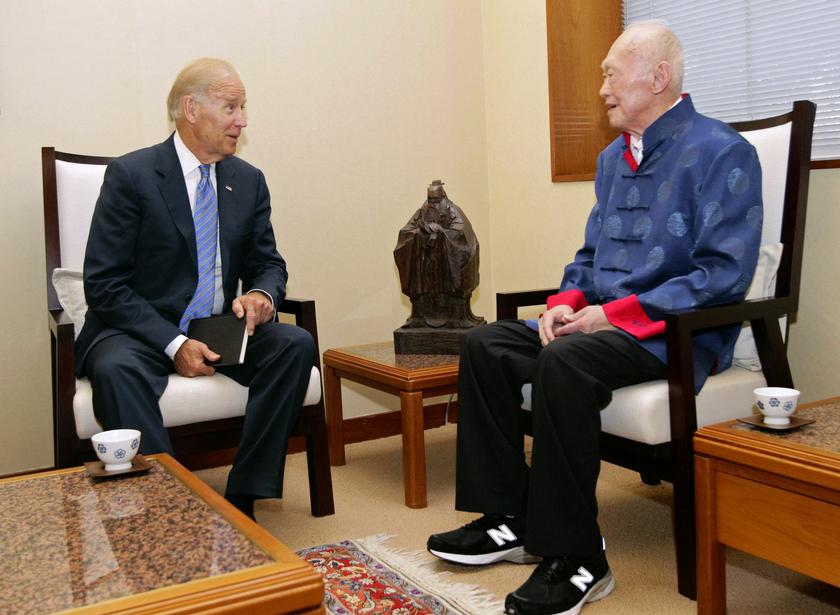PETALING JAYA, Aug 7 — Malaysia will remain a Malay-Muslim country that has become “much more orthodox” in the decades since the nation’s independence under its first Prime Minister Tunku Abdul Rahman, former Singapore Prime Minister Lee Kuan Yew has written in his latest book.
“Once upon a time, they were relaxed,” Lee wrote in his book, One Man’s View of the World, that was launched in the island republic last night.
“Now, under the influence of the Middle Eastern states, they are much more orthodox. They used to serve liquor at dinners and drink with you. When I was there, the Tunku would invite his friends over and drink whisky and brandy with them.
“Now, they toast each other in syrups,” he added.
In a Q&A section in the book, Lee was asked if Malaysia could become more like Turkey than Saudi Arabia, in the sense of becoming “relatively open, imbibing some of the more international values”.
Lee, who turns 90 next month, was also asked if Malaysia could become a “progressive Muslim country”, to which he replied: “You believe that? What do you mean by a progressive Muslim country?
“That they will not wear their headdress, that they will shake hands, men and women, and sit down, that a non-Muslim can be drinking beer and have a Muslim sit down and drink coffee with him?”
Lee also wrote that Malaysians counting on Prime Minister Datuk Seri Najib Razak’s 1Malaysia concept to usher in a new era of race relations are being unrealistic, while those banking on opposition pact Pakatan Rakyat (PR) were not very much less so.
The influential leader noted that the 1Malaysia slogan had failed to gain traction with the Malays.
Lee said that it was “impossible” for Najib to win Chinese and Indian support without losing votes from Umno’s core supporters - the Malays.
He also criticised PR, calling it an “opportunistic ad-hoc group not held together by even vaguely coherent set of ideas but by a common desire to unseat the government”.
Lee argued that when it comes to the crunch, PR would not be able to do away with Malay supremacy.
“The moment the bluff is called and it is handed the full power to push ahead it will either be torn apart from within or be paralysed by indecision,” he said.
In his book, Lee had also pointed out that Malaysia’s acute brain drain problem is due to its government’s insistence on promoting “one race” above all others.
Malaysia experiences a severe talent flight issue with an estimated 5 per cent of skilled locals exiting the country on an annual basis, with the main beneficiary being Singapore.
Lee stepped down as prime minister in 1990, handing power to Goh Chok Tong, but remaining influential as senior minister in Goh’s cabinet and subsequently as “minister mentor” when Lee Hsien Loong became prime minister in 2004.
The elder Lee resigned from his cabinet position in 2011 after his long-ruling People’s Action Party (PAP) stumbled to its worst electoral showing since independence in 1965.
During his time, Lee shared rocky ties with contemporary Tun Dr Mahathir Mohamad.
In their previous books, Lee Kuan Yew: Hard Truths to Keep Singapore Going and A Doctor in the House: The Memoirs of Tun Dr Mahathir Mohamad, the two traded acerbic remarks about each other.



















